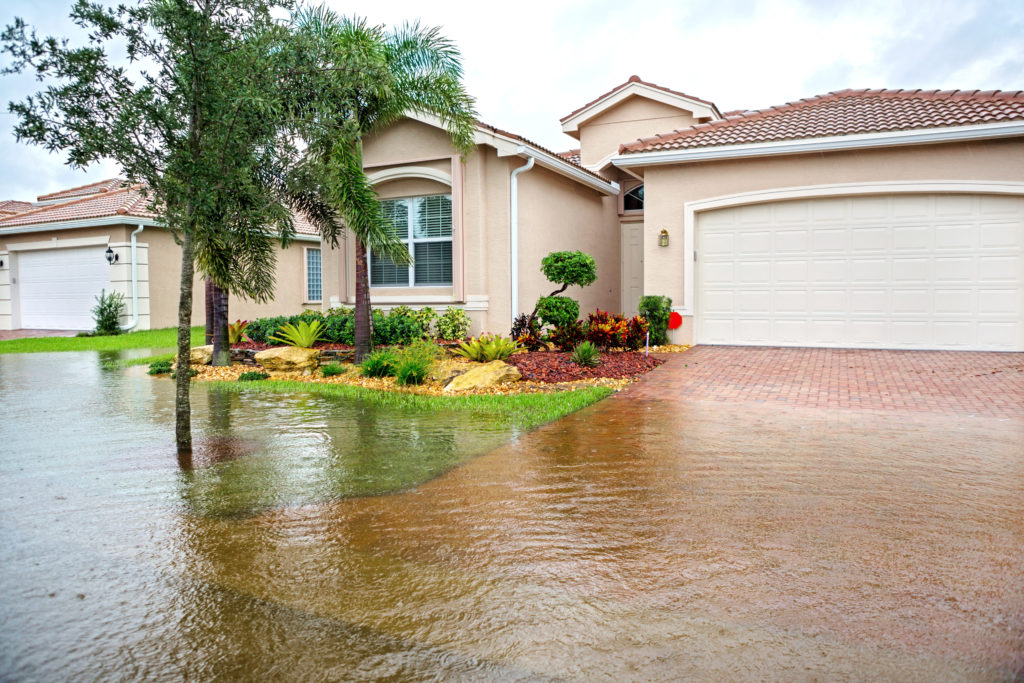Does Homeowners Insurance Cover Water Damage?

If you’re asking, “Does homeowners insurance cover water damage?” we sincerely hope that you are not already ankle-deep in H2O. Answering the water damage coverage question is nuanced; whether your homeowners insurance will cover water damage depends on a number of factors. Let’s dive in.
What types of water damage are covered by Homeowners Insurance?
From overflowing dishwashers to water damage after a fire, the following items are typically covered by homeowners insurance.
Burst Pipes
Burst pipes and accidental overflow are usually covered. Poor maintenance, however, is usually not covered. Scroll down to the next section to learn more. Water damage from a fire
Extinguishing a blaze demands water to douse the flames. The resulting damage will be covered.
Roof Leakage
Sorry to all those who were looking to get a new house-topper! While repairs needed due to leaks from lack of maintenance or wear and tear are not covered, if the wind removes a portion or all of your roof and lets the rain inside, your home insurance responds, unless you opted to exclude wind coverage.Accidental overflow
Should an appliance or fixture malfunction, you are likely in luck regarding recompense. This is one of those classic “thank goodness I purchased insurance” moments when the damage is an absolute surprise. Be aware that some policies limit or exclude water damage. Check your policy for specific terms and conditions.Mold
When left undetected long enough, mold can pose a significant respiratory hazard. If mold is the result of a covered water damage loss, eradication expenses will be paid. Policy limits for water damage and mold coverage will vary depending on your policy form. This is another important reason to review your policy each year and to speak with your personal insurance advisor if you have questions.Vandalism
The creative list of possibilities in this category is endless. Luckily, your homeowners insurance will most likely cover the damages.
What kinds of Water Damage are Not Covered by Homeowners Insurance?
Now for the not-so-great news: Not all water damage is covered by homeowners insurance. Here are a few items that are not.
Ground seepage
When rain falls to the ground, it doesn’t travel straight down. It moves underground and sometimes resurfaces in low-lying home areas. Damages from ground seepage are not covered by homeowners insurance.
Poorly maintained pipes or roofs
You are held to a certain level of care regarding your home. If those pipes are exceedingly old or the repair work on them is shoddy, your coverage is likely not going to help you.
Water or sewer pipe backup
Avoid this scenario by keeping your pipes in good working order.
Flooding
This comes as a surprise to many, but damage from rising surface water (flooding) will not be covered by homeowners insurance. You can view our article about flood insurance to learn more about how to purchase this very important coverage.
How long does it take for water to do damage?
Depending on the amount of water, severe damage can begin immediately. It can quickly spread across the floor, saturing carpets, staining tiles, and destroying furniture. Water will spread until it is stopped, usually by a wall, which can cause sudden impact to the structure of your home. If water touches appliances and electrical outlets, there are even greater risks.
If things remain wet, within the first 24 hours you may see soaked wood, swollen or bent drywall, peeling wallpaper, disintegrating documents, and tarnishing metal. If left untreated for a second day, surfaces will warp and metal surfaces will begin to corrode. You will likely see damage within walls and insulation.
How quickly does mold grow after water damage?
If water damage is left untreated, mold growth begins within a few days – though it may not become noticeable for 1 to 2 weeks. Mold (and mildew) spreads rapidly, posing health risks long before you realize it’s there. In addition to damage to carpeting, tiles, walls, and furniture, mold can cause unpleasant smells in the home and lead to respiratory and skin problems for you and your family.
Is Flood Insurance worth it in Florida?
A simple adage sums up why flood insurance is always a necessary protection for Floridians: Everyone in the Sunshine State lives in a flood zone. Even if you don’t have a view of the Gulf, you are still susceptible to nature-led flooding.
Florida is also the ultimate destination for hurricanes, and these unwelcome storms bring massive flood potential with them. Furthermore, even inland Floridians experience massive rainfalls. These events can happen anywhere and at any time. Lastly, storm surge and tidal waters can easily flood or even level an entire home. The images of homes with flood water nearly reaching the second floor are hard to forget. The devastation caused by surging ocean water is a very real threat to Floridians. (insert a Hurricane Ian link).
Not Sure if You’re Covered? Ask Your W3 Advisor.
At W3 Insurance, our advisors know protection. Specifically, our team understands the nuances of flood coverage and can direct you to the policy that is right for you. Before the flood, there’s W3. Contact us for a review of your current policy or to elect new coverage.

